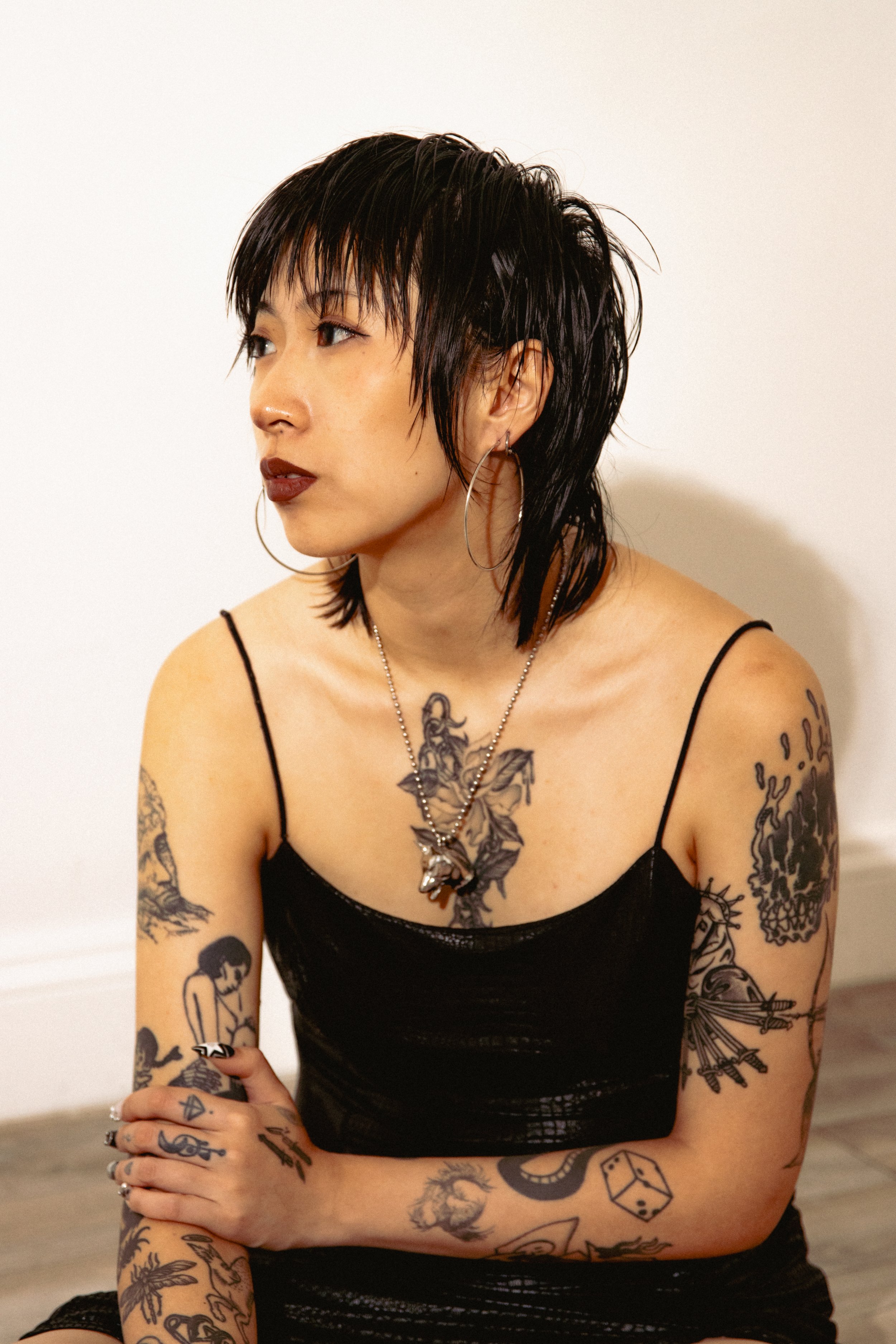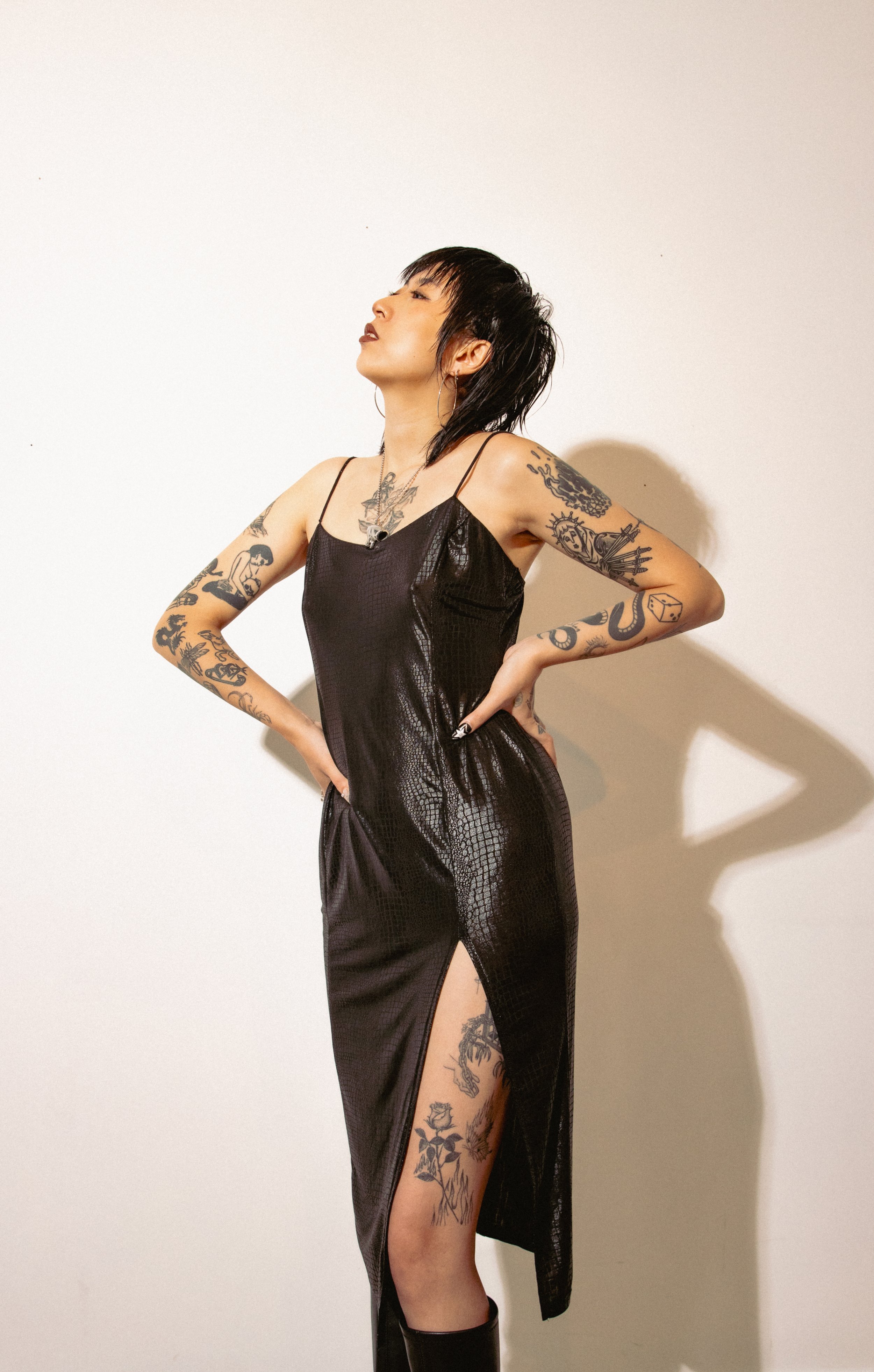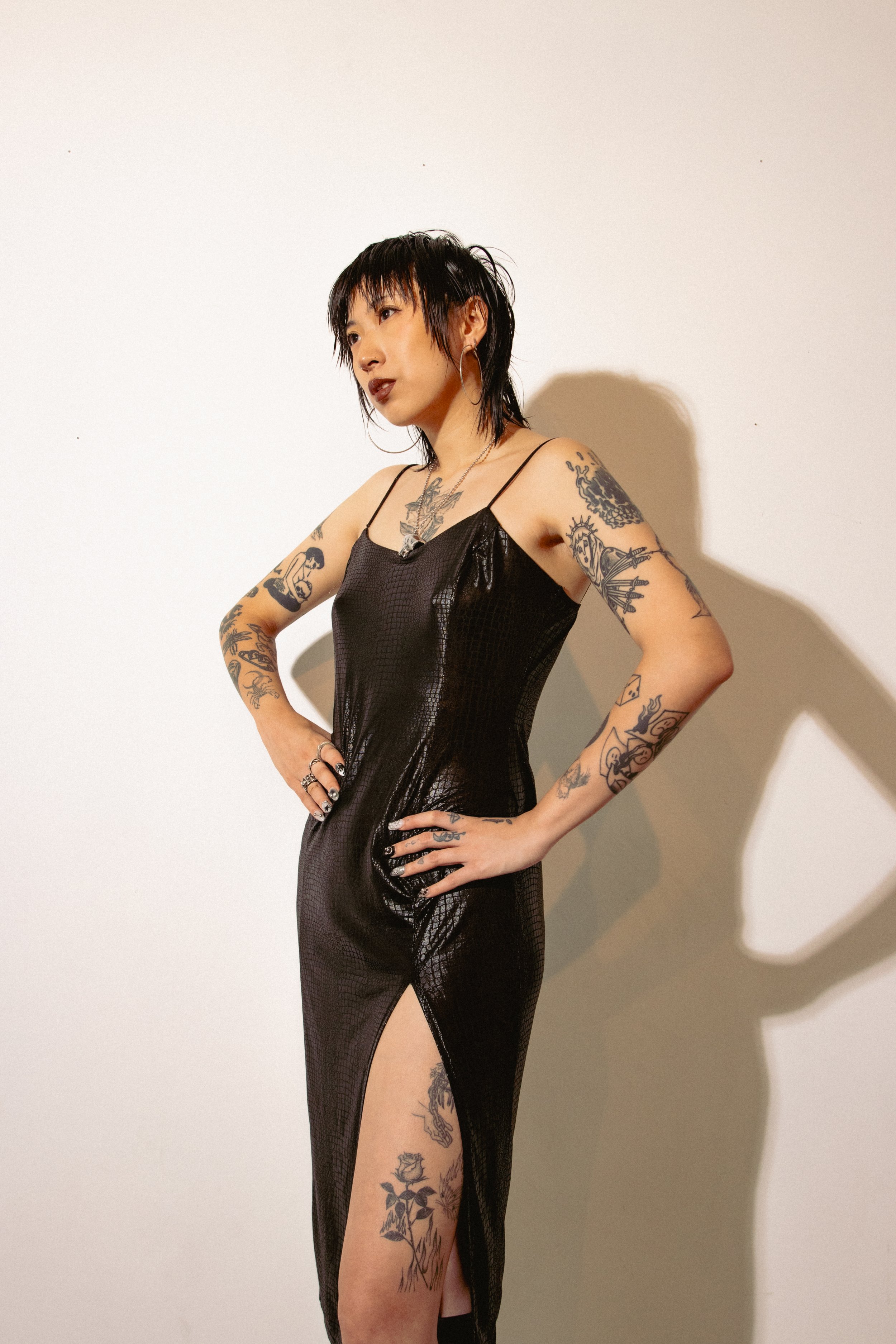Questions for the New Era with Bmore Vox Pop
Sihan Xu photographed by NUNAR photographer Charles Sykes in Baltimore, MD.
NUNAR’s JAN 2024 Nu Era Issue print is now available.
Despite what your typical diversity and inclusion statement might say, the historical mistreatment of many of our nation’s citizens has turned the act of othering into an American tradition. In urban environments like Baltimore, the voices of those who don’t fit the mold of what life in this country supposedly should look like are often forced into submission. Privilege is then placed into the hands of outsiders, who in-turn create false narratives which distort our understanding of these communities and the people residing in them. This story is one we as a society have come to know all too well; however, creative expression provides tools for artists to emerge in protest of these wrongdoings.
Recently, NUNAR had a chance to speak with Sihan Xu, the creator of Bmore Vox Pop. The ongoing video series has earned high praise for its authentic approach to showcasing the voices of everyday Baltimore locals.
Q: Could you start out by telling us a little bit about yourself and how you ended up founding Bmore Vox Pop?
A: So, I'm originally from Shanghai, China. This is my 7th year in Baltimore and I graduated from Johns Hopkins graduate program for Immersive Storytelling, Filmmaking and Sound Design. There was this one class assignment that required us to do a documentary on Baltimore. At first, I wanted to do a Drag Queen documentary, but that idea was taken by another group from the class—I was really sad. But then it came to me that I can just interview anyone in the city since the city's people are what really makes Baltimore. I grabbed my best friends at the time, Kmt and Ali, in March, 2022. And we just did it. And the video turned out great! My professor at Hopkins was like, “I can see this continue as a series.” So, I just kept experimenting with it and I’ve been doing it ever since.
Q: For those who may not have heard of it before, what exactly is Bmore Vox Pop and the inspiration behind it?
A: I wanted it to be a street interview based in Baltimore only. During my undergraduate years at MICA there was a street interview assignment from professor Jane Cottis called voxpop which means “Voices of People”, at the time I did the interview at Inner Harbor with my classmates, and the questions I came up at the time were similar to the first episode of Bmore Voxpop. I feel like people outside of Baltimore tend to have ideas about Baltimore without knowing anything about the city or its people. People tend to think of it as just some underfunded city—I hate the fact that Baltimore has that as its main reputation. But I think the city's people are generally trying their best to showcase their beauty. I think the street interview format is a low-key and philosophical way of showcasing Baltimore's people. Or just life in Baltimore in general. I also wanted to give it a nineties look, just for the aesthetic of it, by using a mic that requires XLR input along with a camcorder. That was the set-up I liked so I kept up with it.
Q: From what we’ve seen on Instagram and, and TikTok, Bmore Vox Pop seems to give some authentic takes about the human experience. Could you talk about some things that you've learned about life or about people in general while you've been creating content?
A: I feel like I learned that Baltimore people aren't very shy most of the time hahahaha. And honestly, to create subtitles for those who are hard of hearing, forced me to learn a lot of lingos, as English is my second language and I’m not from Baltimore. Sometimes I have to ask friends that are local to help me out with subtitles. Everyone has their own philosophy and I feel like these people don't get many opportunities to express theirs. I always see myself as a critical thinker, I want my questions to intrigue both interviewees and whoever watches it to answer the questions in their heads. Baltimore people are really good critical thinkers, and they are proud of it. They need things like Bmore Voxpop. I think the city's unfortunate pressure has made people think a lot more. The environment does a lot to people's minds. And I also learned that people actually like the series and support it due to the voice it gives through a media platform, which warms my heart.
The goal is to not isolate Baltimore like the news media wants to do.
Q: As stated by your Instagram bio, Bmore Vox Pop interviews the beautiful people of Baltimore, Maryland. What about Baltimore do you personally find beautiful and do you feel like these elements are captured in your videos?
A: I feel like I don't capture the beauty of Baltimore enough. I'm a photographer and filmmaker on the side as well, and I walk around the city pretty often and I don’t have a car. I see the beauty among the mundane aspects of the streets, and to be honest, there are so many surreal moments/stories around this city everyday. From gas stations to clubs or any corner store. I feel like Vox Pop shows this refreshing element of Baltimore’s humanity. The big media have focused on the city’s sufferings and I want the city to have some fun that’s healthy to lift up their spirits. The video edits with the music make it kind of like an adventure, especially in the Late Night Edition episode. I feel like the most magical moments in the city happen during late nights when people feel relaxed. It's kind of like New York City type of magic, but I think Baltimore has magical elements of its own. There’s a specific brand of genuineness that comes with Baltimore.
Q: You mentioned that Vox Pop stands for Voices of People. Why do you feel like it's important for your work to highlight everyday people and the things that they have to say?
A: Like I mentioned before, I feel like people in this city are really great critical thinkers. They're kind of like diamonds under pressure. I want Bmore Vox Pop to give that impact of compassion and empathy that every human anywhere has so that whoever views the videos can connect with the interviewees. And I think that's what the people of the city would like to see too, to remind themselves they are not victims of the system and they have a power to say something that makes the viewers think critically like they do. The goal is to not isolate Baltimore like the news media wants to do.
Q: The premise of Bmore Vox Pop is based on asking people random questions. What do you think is a question that we as human beings, don't ask each other enough?
A: On the top of my head right now, I think a question would be, “Do you have someone who always has your back no matter what?” And I hope the answer for everyone is that they actually have somebody that reminds themselves that love is the safe shore, or that they have themselves, because it's rough in American society every day. You never know if someone is okay just because they say they are okay. I hope no one feels that they’re fighting the battle alone. And I hope everyone keeps a certain amount of resilience—like that feeling of safety.
Q: For anyone who chooses to consume content produced by Bmore Vox Pop, what would you want them to get from it?
A: I want them to actually talk to Baltimore locals more and learn about the city more. And also, I want them to just enjoy it—enjoy Bmore Vox Pop, be entertained by Bmore Vox Pop—and I mean, the whole project is still in an experimental stage. As I'm releasing episode after episode, I'm studying the feedback people give me and rethinking what the next episode should look like. I just want people to maybe share the video and most importantly, I want people to know that Baltimore has really great answers for great questions.




